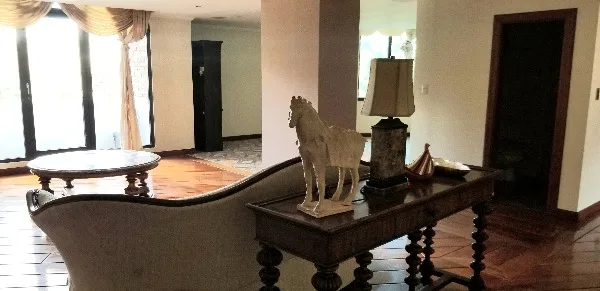Odebrecht overdue: Is gov’t withholding names of the guilty until after the election?
By Ramiro Crespo
Only in Venezuela and Ecuador have the judiciaries failed to disclose the names of people involved in the corruption scandal acknowledged by Brazilian construction firm Odebrecht in the Americas and Africa.
Ecuador prosecutor General Galo Chiriboga has insisted that his office is doing all in its power to bring those at fault to justice. But while this counters , to some extent, the official government stance that nobody in the Correa administration is to blame, the newspaper El Universo this week broke the news that the government claim is completely false. Almost two months ago, Odebrecht offered Chiriboga a comprehensive deal to provide information and repair the damages.
, to some extent, the official government stance that nobody in the Correa administration is to blame, the newspaper El Universo this week broke the news that the government claim is completely false. Almost two months ago, Odebrecht offered Chiriboga a comprehensive deal to provide information and repair the damages.
According to the Guayaquil newspaper, Odebrecht said in a document on January 21 that it would hand over the “the same information presented before Brazilian and U.S. authorities” and pay the country for the damages as it tries to restore its tarnished international reputation. In the case of Ecuador, the company admitted paying unnamed Correa administration officials $33.5 million to settle a dispute over a power plant, earning more than $116 million illicitly thanks to the transaction.
Chiriboga claims he will not have access to the names of the guilty until the U.S. Department of Justice, which is managing the case, releases them.
The document cited by El Universo also says that the company set terms for a deal that include protection from prosecution of individuals already implicated in cases in Brazil and “continuity of the contracts” the company still has in Ecuador. While the administration says that the only remaining contract is that of the Quito underground metro rail, a judge has blocked $40 million in payments still outstanding to Odebrecht for work already completed.

Ecuador Attorney General Galo Chiriboga
While the government is desperate for cash — unable to pay numerous debts owed to public institutions and public-sector retirees without issuing IOUs — it appears even more desperate to keep the most likely official to appear on the list of beneficiaries of Odebrecht bribes out of the limelight amid the presidential runoff campaign (the vote will be April 2 and serious poll data looks bad for Lenin Moreno, Correa’s former vice president).
Opposition politician César Montúfar this week demanded Chiriboga investigate Moreno’s running mate, current vice president Jorge Glas, for his role in the scandal. “If there’s one name, one person, one personality, a government official in charge of … most of the contracts that Odebrecht signed … this person is the vice president of the republic,“ Montúfar said this week.
For his part, Chiriboga has said that negotiations with Odebrecht indeed exist and that he expects to obtain the names of people bribed by Odebrecht “before June,“ well after the election and potentially also after Correa’s term expires May 24, giving any officials time to flee the country, just like former oil minister Carlos Pareja and former central bank president Pedro Delgado did, as well as most managers at Petroecuador implicated in the corruption scandal there.
While the criminal matter has been largely resolved, the issue of financial indemnity remains unresolved, according to Chiriboga. Differences in timing compared with other countries like Peru and Colombia stemmed from the fact that whistle-blowers there provided prosecutors with information, which hadn’t happened here, Chiriboga said. “Our work doesn’t coincide with media or or political time frames; issues of judicial investigations have their own logic,” Chiriboga said in a television interview with Ecuavisa. Sadly, El Universo’s scoop clarifies that political logic is indeed the driver behind the Ecuadorian prosecution.
Another corruption scandal, the case of the Caminosca engineering company accused of bribing public officials, has yet to be taken up by the prosecution other than investigating a journalist who reported the story for newspaper Expreso. This, despite evidence going back to 2015 (reports again point to vice president Jorge Glas and former electricity minister Esteban Albornoz, recently elected to the National Assembly; both deny the charges).
This has also become clear behind the procedure to find Chiriboga’s replacement. The 2008 constitution shifted the naming of top state officials to a new, unelected body called the Citizens’ Participation and Social Control Council (CPCCS) that, as critics had warned at the time, became staffed with people close to the government. These in turn designed competitions for the positions that have steadfastly again favored people linked to Correa, like Chiriboga, earlier Correa’s personal lawyer in a controversial lawsuit that the president won against Banco Pichincha and then, his oil minister before becoming prosecutor.
Now, Carlos Baca, a lawyer who worked just as closely with Correa is poised to succeed Chiriboga, thanks to the near-perfect score he obtained in the CPCCS test that lists work for the government as top credit for official positions. Baca led a commission that investigated the September 30, 2010 police protest that, violently managed by the government, spiraled into a bloody extraction of Correa from a police hospital during prime time viewing hours. As Correa said within hours of the incident, Baca’s commission found that it was an attempted coup, rather than a bid to keep certain privileges, as the protesting police insisted. Before deleting his account, Baca trolled opposition critics on Twitter, and could be even more “unconditional and obsequious“ than Chiriboga, journalist Martín Pallares wrote in a column on news portal 4Pelagatos. Another site, UbicaTV, calls him a “fanatical correísta.“
For his part, Correa this week said that “Carlos Baca is a top-rate jurist. He’s worked with our government, which makes us proud … What’s the problem? That no-one from the opposition is winning.” Correa added that “the prosecutor general in the United States is designated directly by the president,” ignoring the fact that the U.S. Attorney General has a different role as a cabinet member and requires confirmation by the U.S. Senate.
Correa is counting on Baca to protect his legacy from the fast-accumulating body of evidence of corruption and other potential crimes. Whether Baca will be able to keep his finger in the dike under an administration led by Guillermo Lasso, the conservative opposition leader who looks like the frontrunner to succeed Correa, is questionable.
___________________
Ramiro Crespo is chairman of the board of the Quito-based investment firm Analytica Investments, analytica.ec.
















